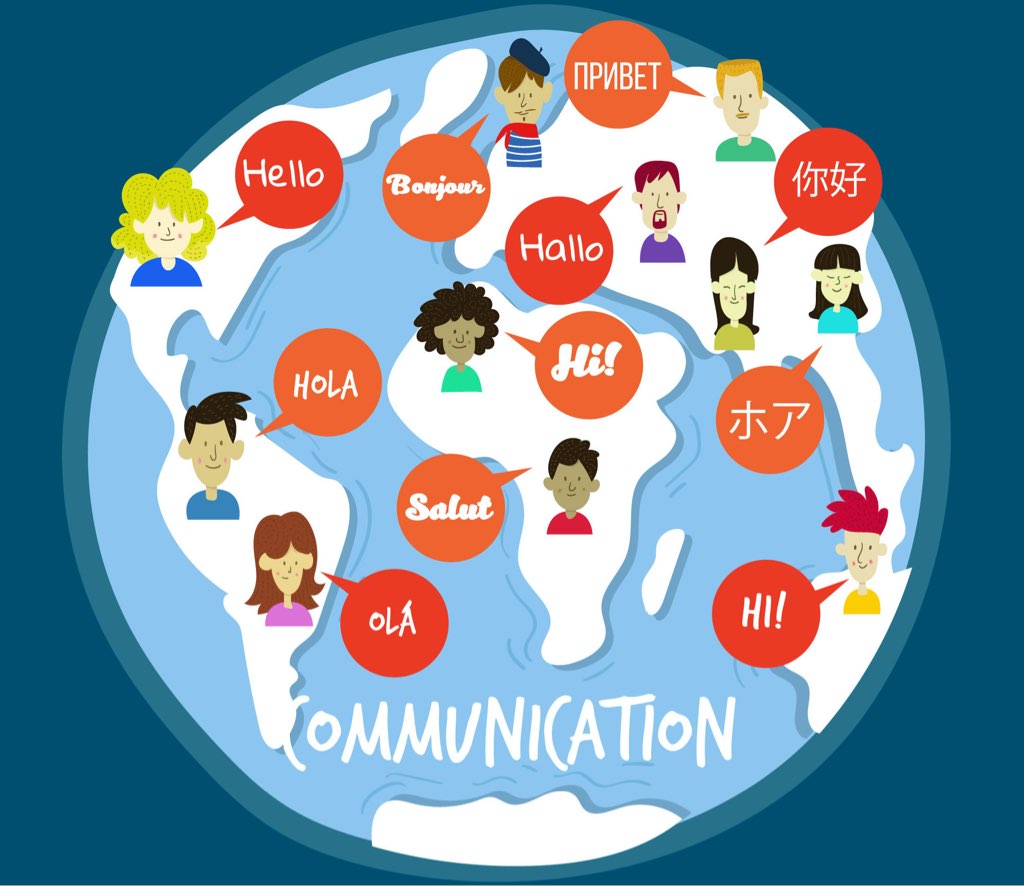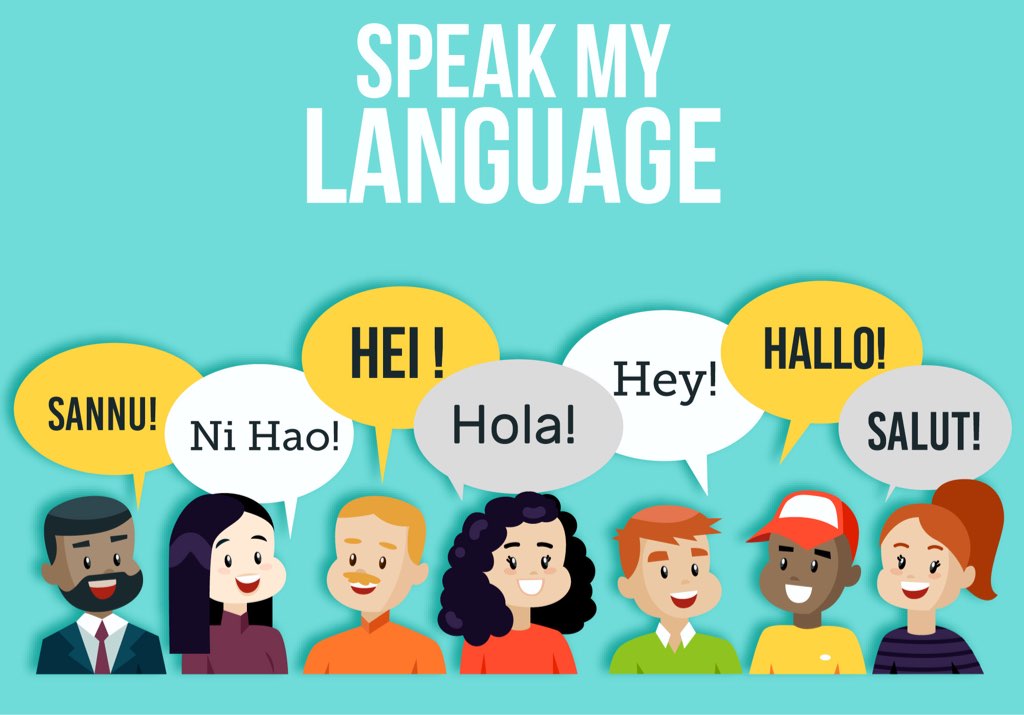What Are The Benefits of Learning a Second Language in 2021
Mục Lục
Benefits of Learning a Second Language
Thanks to modern language learning apps like Encore!!!, it has never been easier to learn a second language. After years of research, scientists now agree that the benefits of learning a second language are numerous, affecting all aspects of our daily lives. Here are top five reasons why learning a second language is beneficial.

What Are the Benefits of Learning a Second Language?
During the first half of the 20th century, it was believed that bilingualism, the phenomenon of speaking and understanding two or more languages, hinders cognitive development. We now know that the linguists and psychologists at the time relied on deeply flawed research methods that led them to the wrong conclusion.
In reality, the benefits of learning a second language are so profound that it is now being explored as a possible prevention and treatment for some of the most serious degenerative brain disorders.
We also know that it’s never too late to start learning. Even adults whose brains are past their prime can achieve fluency if they choose the right learning method (preferably one that takes advantage of their existing L1 language knowledge) and immerse themselves in the target environment.
1. More Career Opportunities
According to one study released by New American Economy, there were roughly 240,000 job postings in the United States aimed at bilingual workers in 2010. By 2015, the figure reached approximately 630,000. Today’s global economy requires employees who speak more than one language, and this trend will only accelerate in the future as emerging economies in Asia and Africa join the global stage, highlighting the tremendous importance of learning a second language.
For English speakers, Spanish is an excellent choice because 79 percent of North American recruiters cite it as the additional language most in demand by employers, followed by French with 43 percent and Mandarin Chinese with 30 percent. To maximize the benefits of learning a new language when it comes to career opportunities, it’s a good idea to select the language of leading players in your industry.
2. Create Meaningful Human Connections
The ability to create meaningful human connections with people from different cultures is one of the most commonly overlooked benefits of learning a foreign language. For monolingual travelers, visiting a new country can sometimes feel like a guided museum tour. Such travelers typically remain passive observers for the entire duration of their travel, interacting only with other members of their group.

Travelers who can speak with the locals are able to escape the tourist bubble and enjoy a truly authentic experience. They can communicate with locals who understand only their own language, better appreciate their culture and traditions, and use their knowledge to open doors to opportunities that would otherwise be inaccessible. Even if wanderlust isn’t coursing through your veins and you prefer to stay put, knowing a second language can deepen your appreciation for strangers you meet online.
3. Improved Cognitive Abilities
For a long time, it was believed that many cognitive benefits of learning a second language at a young age gradually disappeared later in life. Thanks to modern research methods, such as magnetic resonance imaging, we know that’s not true. One Swedish MRI study showed that learning a foreign language has a visible effect on the brain.
“While the brain structure of the control group remained unchanged, specific parts of the brain of the language students grew. The parts that developed in size were the hippocampus, a deep-lying brain structure that is involved in learning new material and spatial navigation, and three areas in the cerebral cortex,” explained the researchers in their paper.
Because people who speak more than one language are used to switching between different languages, they find it easier to process information and maintain attention even when presented with distractions. With technology taking over our world and distractions becoming increasingly difficult to escape, this benefit of learning a new language alone is a good reason to download an app like Encore!!! and start studying.
4. Better Memory
Teachers like to say that the brain is a muscle that can be developed through studying, and they’re closer to the truth than most of their pupils would like to admit. A study published in the Journal of Experimental Child Psychology revealed that bilingual children have significantly better working memory than monolingual children.
Working memory is the part of short-term memory which is concerned with immediate conscious perceptual and linguistic processing. Because learning depends heavily on working memory, making an effort to learn a second language is a great way to improve it.
Language learners themselves often notice that the more time they spend on learning, the easier it becomes. The key is to get over that initial hump as soon as possible.
5. Prevents Dementia and Alzheimer’s
There’s a growing body of evidence suggesting that delaying the onset of brain diseases like dementia and Alzheimer’s is one of the potentially most useful benefits of learning a second language. One particular study found that bilingual seniors delayed certain types of dementia by an average of 4.5 years.
The largest research yet to study the effects of bilingualism and dementia delivered similar results after examining almost 650 dementia patients. The scientists found that bilingual people tend to develop dementia up to five years later than monolingual people.
They believe that the key to preventing dementia and Alzheimer’s is switching between different sounds, words, concepts, grammatical structures, and social norms. All this extra work bilingual people do without thinking about it on a daily basis turns out to be a highly effective form of brain exercise whose benefits arrive a long time before fluency.
More Reasons For Learning a New Language
Let us list the other very good reasons for learning keeping in mind that most of us, with dedication, can learn multiple languages to a point of use at any age. And without sacrificing our mother tongue.

- For immigrants and refugees, it offers the chance to a better life.
- For adventurers and explorers of culture and new experiences it can open a door to new music, art, and culture.
- For many of us learning the language of our ancestors can connect us to our roots and give us a new sense of pride in our heritage.
- For many of us a foreign language can offer new social and romantic connections. This can also break taboos and barriers between people.
- Every language has its own way to express the human connection to the universe. A new language and its metaphors and poetry can open new ways to develop spiritually.
Conclusion
Regardless of whether you’re young or old, learning a foreign language is always a great way for you to spend your free time. Even if you have no use for a second language (you most definitely do!), the benefits of learning a new language—from better work opportunities to improved cognitive abilities to the prevention of dementia and Alzheimer’s—make it a great way to upgrade your life. To begin your learning journey, all you need is a smartphone and the Encore!!! app, which delivers a proven approach that is guaranteed to bring great results.
Benefits of Learning a Second Language – FAQ
1. Is it a good idea to learn 2 languages at once?
For most people without previous language learning experience it is not a good idea to tackle two languages at once. When it comes to language learning – multitasking often produces poor results. Our recommendation would be to get comfortable with one language before starting to learn another one.
2. What is the most useful second language to learn?
Pragmatically speaking, the most useful second language to learn is the one that’s used the most by native and non-native speakers in a particular region of the world that interests you. However, there’s no point in learning a language that you have no personal use for, so make sure to take your own needs and priorities into account.
3. What are the cons of learning a second language?
Arguably, the only notable downside of learning a second language is the amount of time one needs to dedicate to the task. That said, the benefits that come from knowing a second language far outweigh the required time commitment.
4. What is the best age to learn a second language?
According to language acquisition experts, it’s possible to learn a new language at any age. However, the sooner you start, the shorter you can expect your journey to fluency to be. Those who wish to become fluent in a foreign language should start learning before they turn 10. According to several studies, one’s ability to learn a foreign language starts to precipitously decline after the age of 18.















![Toni Kroos là ai? [ sự thật về tiểu sử đầy đủ Toni Kroos ]](https://evbn.org/wp-content/uploads/New-Project-6635-1671934592.jpg)


